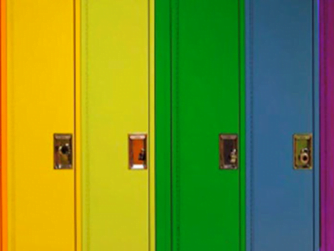
(Want to listen instead? Click here.)
Is it time to stop saying the Pledge of Allegiance? I asked myself this question after visiting a high school class I was observing. When the “Please stand for the Pledge” announcement was given over the loudspeaker, I stood up and placed my hand over my heart. To my surprise, I was the only one standing. Not one student, not even the student teacher whom I was observing, stood. Their heads remained diligently bent over their cell phones.
I said the words I had repeated every school day for 36 years, alone and out loud, to the silent class. When the Pledge finished, I sat down. The teacher approached where I was seated and whispered, ” I think you just freaked everyone out.”
“No one says the pledge?” I inquired incredulously.
“No, never,” she replied matter-of-factly.
When did this start? My middle school classroom had seen all students stand; in recent years, most students stood silently, while a few would mumble the words if I prodded. But in all my years, I had never seen a class where no one stood at all.
The Pledge of Allegiance is a daily ritual in many schools and public events in the United States. The Pledge, written in 1892, promises loyalty to the United States of America. However, over the years, the practice of reciting the Pledge has become contentious, with supporters and opponents having strong arguments for and against its recitation. Here are some pros and cons to consider when deciding if schools should stop saying the Pledge of Allegiance.
Pros of Saying the Pledge of Allegiance
1. Fosters Patriotism
One of the primary arguments for saying the Pledge of Allegiance is that it fosters a sense of patriotism and national pride. The daily reciting of the Pledge can instill a sense of belonging and loyalty to the country, its values, and its people. Some feel regular recitation of the Pledge can help students understand the importance of the country’s history, traditions, and symbols, such as the American flag. However, for this to be true, students must understand the symbolism and history of the flag and our country.
2. Encourages Unity
Saying the Pledge of Allegiance can promote unity and togetherness. When everyone recites the Pledge together, it can create a sense of community and solidarity. After the 9/11 attack, President Bush called on the country to unite in a unifying pledge recitation. Some feel the Pledge can help individuals appreciate the importance of working together to achieve common goals. Saying the Pledge has become an American tradition, and everyone in the country is invited to participate. Traditions have a way of binding people together with a sense of belonging. The Pledge of Allegiance is an invitation to belong to the American dream.
3. Teaches Responsibility
Reciting the Pledge of Allegiance can also remind students about their responsibilities as citizens of the United States. It can help them feel the significance of upholding the country’s laws, participating in elections, and serving their communities. Teaching students to connect emotionally to the Pledge as a representation of the rights and protections our Constitution guarantees encourages them to become active members of society and work towards making positive changes and protecting these advantages.
Cons of Saying the Pledge of Allegiance
1. Violates Freedom of Speech
One of the main arguments against saying the Pledge of Allegiance is that it violates freedom of speech. Forcing students to recite the Pledge can be seen as a form of compelled speech, which the First Amendment protects citizens from. Students should have the right to choose whether or not they want to recite the Pledge without facing any consequences. Many court cases have upheld this sentiment over time. If the Constitution allows citizens the right to dissent, then mandating the reciting of the Pledge contradicts that right.
2. Discriminatory Language and Practices
Some see the language used in the Pledge of Allegiance as discriminatory. The phrase “under God” was added to the Pledge in 1954, and some argue that it excludes atheists and agnostics. When “under God” was added to the Pledge, the United States and Russia were at the beginning of the Cold War. A politically motivated Congress voted to add the phrase to help distinguish the United States from “Godless” Russia. Also, the act of standing to honor the flag is seen by some religions as idol worship. These groups can feel like they don’t belong. Even though they may have strong feelings of patriotism, they can be accused of the opposite because they refuse to participate. In today’s environment, maybe it’s time to stop saying the Pledge of Allegiance, as those words and actions do more to divide than bring us together.
3. Historical Experiences
The Pledge of Allegiance, written in 1892, needs to be updated to reflect the changing values and beliefs of the country. Some argue that the Pledge’s emphasis on “liberty and justice for all” does not reflect the experiences of all individuals in the country, particularly those who have faced discrimination based on race, ethnicity, gender, or sexual orientation.
4. There’s Little Educational Value
Finally, where is the proof that reciting the Pledge of Allegiance does what proponents say it does? Is there proof that the recitation of the Pledge instills patriotism and allegiance to the country? Does it lead to better informed and contributing citizenry? There’s little research on whether or not the Pledge accomplishes any of this. The time devoted to saying the Pledge might be better used to teach its history, symbolism, and meaning. Unless there is an understanding of what it means, maybe it’s time to stop saying the Pledge of Allegiance. The rote recitation imposed upon students is as meaningless as when I read Spanish. I can read it just fine, but I have no idea what it means.
Conclusion
In conclusion, the Pledge of Allegiance is a topic that generates a lot of debate and discussion. Supporters argue that it promotes patriotism, encourages unity, and teaches responsibility, while opponents feel that it violates freedom of speech, contains discriminatory language, and has little educational value.
As a society, we should strive to create a culture of inclusivity and respect where all individuals feel welcome and valued. This means acknowledging our citizens’ diverse experiences and perspectives and working towards creating a more equitable and just society. The Pledge of Allegiance can be a part of this effort. Still, only if its symbolism is readily understood, its words are updated to reflect our country’s changing values and beliefs, and if individuals have a choice to participate.
I pledge to support and uphold the Constitution of the United States of America, one country indivisible, still striving to create liberty and justice for all













